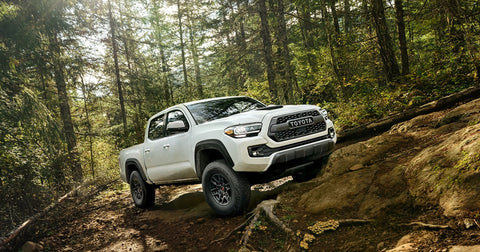There are several reasons why you should have winter tires when the temperature reaches below 7ºC:
Despite the name, all season tires are just not meant for winter conditions here in Alberta. All Season tires are built to handle most conditions pretty well but they are not the best for winter conditions. Once the temperature dips and the snow accumulates, all season tires under perform. However Winter tires start working their best at this time.
Here is why:
- Winter tires maintain their rubbery sticky compound, they do not get hard and stiffen up like all season tires once the temperature reaches below 7ºC. Different polymers in winter tires don't lose their rubbery nature and flexibility unlike all-season tires. All season tires are built to maintain a certain stiffness so they don't wear out too quickly.

- Winter tires have tread designs specifically for winter conditions, where all season tires are generalized and mostly designed for the summer season...with a bit for winter. Winter tires differ because they incorporate "sipes" which are little zig-zags in the tire that grip in icy conditions. All season tires don't have as many and won't grip as easily.

- Water and Ice evacuation is a major concern, as slushy roads can be the most dangerous. Winter tires provide specific spaces in the tread to throw the ice and slush build up out of your tire tread, so they do not compact into the tire which can cause a concerning lack of traction.

- Winter tires Grip! Tires are just like our own shoes. If there is a thick soft tread you're going to be able to adjust quickly, stop quick, accelerate promptly and even turn corners without losing control. No one wants to wear high heels on an ice rink! Same goes for your tires! If your tires stick to the road, your vehicle will be able to make quicker adjustments, reduce braking distances and maintain control better than with an all season tire.
A great rule to remember is
If it's below 7ºC or less, Winter Tires are Best!

